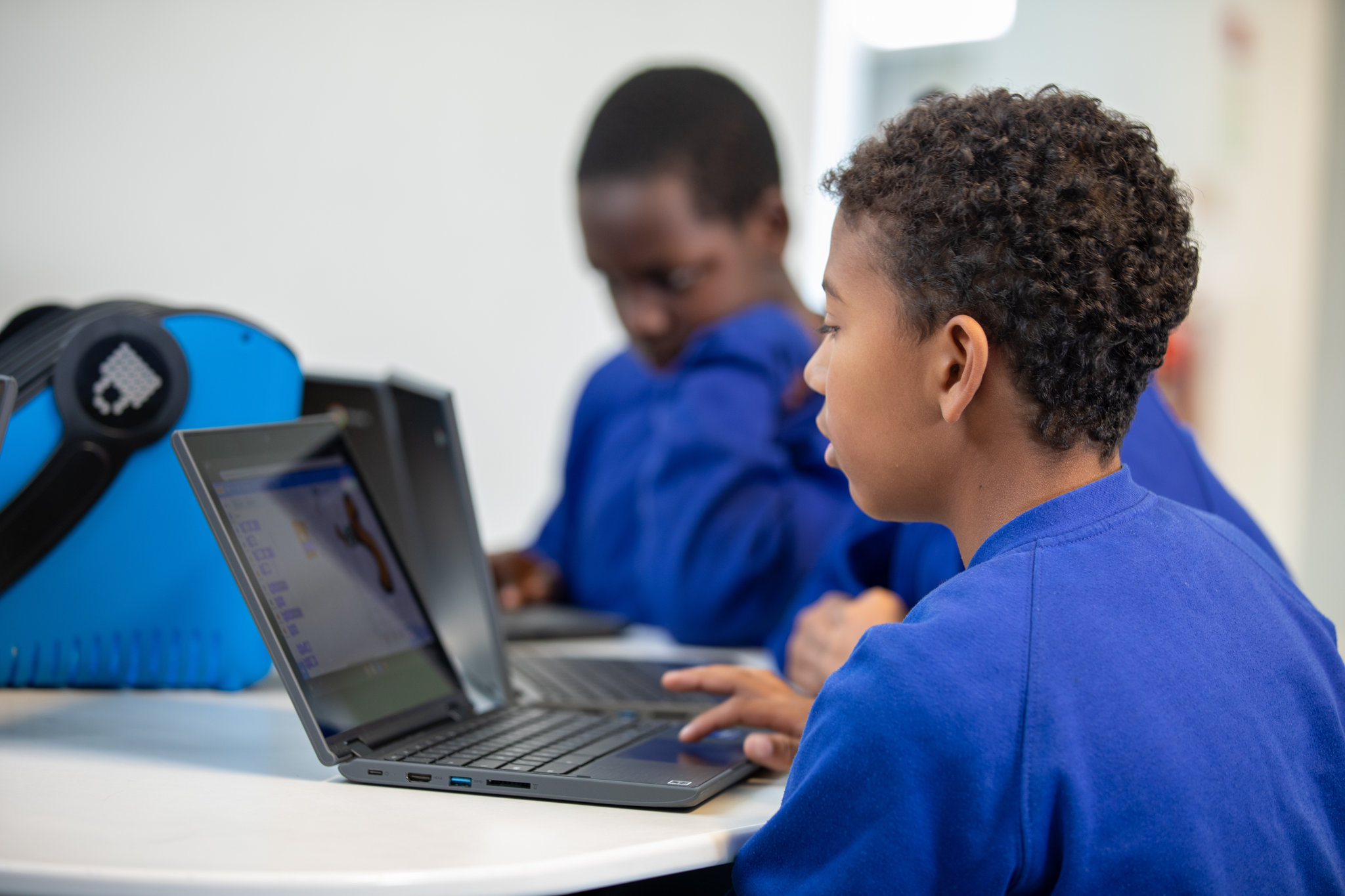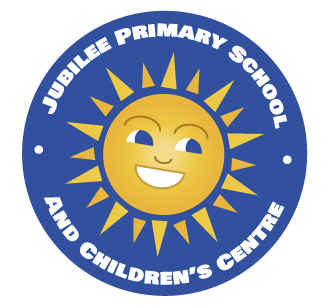Computing at Jubilee
Subject leader: Alastair Crockett
The 2014 curriculum has brought about more opportunities for using technology and communications media across the curriculum and is full of challenging, fun and relevant learning opportunities. Children are prepared for a rapidly changing world through the use of technology across all areas of their learning. At Jubilee, all classrooms are equipped with a computer and an interactive whiteboard to give teachers and children the tools to be creative and confident technology users.
We benefit from the use of a two Chromebook trolleys, that hold 30 each – turtles and roamers, and a range of software to support teaching and learning in the subject. We teach Computing in discrete weekly sessions as well as accessing Computing resources and applying Computing skills widely throughout our learning.
In Reception and Key Stage 1, children are taught skills to use equipment and software confidently and purposefully to communicate and handle information, and to support their problem solving, recording and expressive skills. Children are taught to use technology safely and respectfully.
In Key Stage 2, children extend their use of the computing that they use for communication, investigation and programming and work to understand how to communicate safely. Children get stuck into the early stages of coding, learning to program and debug using simple algorithms.
We use a wide range of programs including in Key Stage 1; Busy Things, Espresso, and Scratch Junior, and in KS2: Scratch, Logo and Kodu. These programs foster the skills that the children need to be competent in the ever evolving world of technology.
INTENTION
Jubilee's Computing curriculum is designed to equip children with the digital-literacy skills necessary to enable them to communicate, create and be an agent of change in the digital world. Computing teaches pupils how to work using logical thinking and problem-solving skills. It develops pupils’ ability to write, test and debug algorithms for a particular purpose, such as programming games, and also to use technology in other areas of the curriculum and in the wider world.
In its online safety strand, the pupils learn the crucial skills necessary, empowering them to become an ethical, respectful and responsible internet user in all aspects of digital life and to be aware of what they leave in their digital footprint.
We intend to build a computing curriculum that prepares pupils to live safely in an increasingly digital British society where pupils can evaluate and apply information technology, including new or unfamiliar technologies, analytically to solve problems.
IMPLEMENTATION
Pupils will explore the three areas of the computing curriculum:
ONLINE SAFETY - evaluating digital content, using technology safely, respectfully and responsibly and identifying a range of ways to report concerns.
USING AND UNDERSTANDING TECHNOLOGY - Learning how computers work and how to use technology to create, manipulate and retrieve digital content.
PROGRAMMING - design, write and debug programs that accomplish specific goals.
- A clear and effective, bespoke cross curricular scheme of work that provides coverage in line with the National Curriculum. Teaching and learning should facilitate progression across all key stages within the strands of digital literacy, information technology and computer science
- Access to resources which aid in the acquisition of skills and knowledge.
- Children will have access to the hardware (computers, tablets, programmable equipment) and software that they need to develop knowledge and skills of digital systems and their applications
- Teaching and learning should facilitate progression across all key stages within the strands of digital literacy, information technology and computer science. Children will have the opportunity to explore and respond to key issues such as digital communication, cyber-bullying, online safety, security, plagiarism and social media.
- Wider Curriculum links and opportunities for the safe use of digital systems are considered in wider curriculum planning.
IMPACT
- Children will be confident users of technology, able to use it to accomplish a wide variety of goals, both at home and in school.
- Children will have a secure and comprehensive knowledge of the implications of technology and digital systems. This is important in a society where technologies and trends are rapidly evolving.
- Children will be able to apply the British values of democracy, tolerance, mutual respect, rule of law and liberty when using digital systems.
Jubilee's Digital Leaders
We are lucky to have ambassadors across the school who help to drive Computing forward at Jubilee. Digital Leaders are a steering group of children who:
- Help to teach about and promote Online Safety and help adults develop our rules to help children stay safe when on the internet.
- Test new Computing resources, which could be websites, software or hardware.
- Share their skills and expertise with other pupils, classes and teachers through workshops and surgeries.
- Set up and maintain Computing equipment in classrooms for teachers.
- Support teachers and classes to use Computing in the classroom.

If you would like to find out more about the computing curriculum at Jubilee, please email admin@jubilee.lambeth.sch.uk and write F.O.A Alastair Crockett and they will respond to the enquiry.
